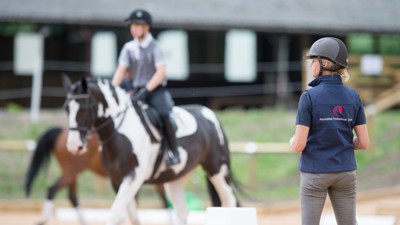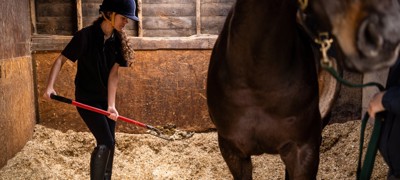Winter often means increased costs for horse owners, such as forage or bedding if stabled. With fuel prices, fertiliser and energy prices on the increase, it’s highly likely that farmers, farriers and other professionals will need to pass the cost on to their clients1 causing this increase to be seen all year round. Where costs can be reduced, it is essential that this doesn’t have a negative impact on your horse’s welfare or health.
Be aware of false economies
We have come up with some cost-saving ideas to try and help make your money go further. Crucially, the best money saving tip on horse health is prevention. We strongly advise maintaining routine health care including your regular farrier appointments, dental checks, saddle fitting checks and vaccinations. Stopping these or increasing the length of time between appointments can be a false economy. It could potentially have a significant impact on your horse’s health and could end up being very costly if a problem arises. Always use a suitably qualified professional to safeguard your horse’s welfare.
Some of the suggestions may not be suitable for your horse or circumstances. Remember, it’s important to introduce any changes gradually and always seek professional advice if you are concerned about your horse. It can be difficult to balance cost savings against unintended consequences that may arise as a result. Where possible consider all circumstances and what impacts this could have on you and your horse.
Routine healthcare
Don’t cut corners with vet care by trying to treat or diagnose issues yourself. If you’re ever unsure you should always call your vet for advice. Most vets are happy to do this and will assess whether they need to come for a visit. If your vet practice is close by, save on call out fees for routine care such as teeth and vaccinations by driving your horse to the vet if you have access to transport. Many practices will now offer a ‘health care plan’ to spread the cost of routine care over 12 months – speak to your vet to see if this is something they provide.
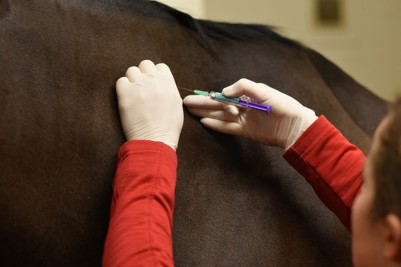
Veterinary fees insurance cover
Have a contingency plan in case of unexpected vet bills. This could be a separate savings account, especially if you don’t have any vet insurance cover.
There are also things to consider even if you do have vet insurance. Exemptions and excesses on policies can soon mount up. Be aware that the maximum insurance cover may not be enough money in certain circumstances, for example the additional cost of colic surgery if there’s a complication. The additional cost above the insurance maximum, would likely have to be paid by the owner. Make sure you have a care and emergency plan in place.
Testing-led deworming
Think before you worm. Not only is it more beneficial for your horse, and for reducing worm resistance, but doing faecal worm egg counts can limit how much you spend on chemical dewormers. Seek advice from your vet to set up a testing-led deworming programme that works for your horse.
Hoof care
Investigate shoeing options with your farrier. Could your horse potentially go to wearing just front shoes or go barefoot? It’s important to follow your farrier’s advice to prevent lameness issues.
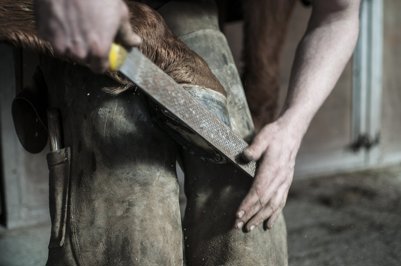
Public liability insurance
Our BHS Gold Membership comes with lots of great value benefits to save you money including public liability insurance up to £30 million.* Horses are unpredictable, and accidents can happen. Anyone who owns, rides, or looks after a horse is strongly advised to carry public liability insurance cover, because they may be legally liable to pay compensation for any damage or injury caused by their horse. Personal injury compensation claims can sometimes run into millions, meaning that anyone who is uninsured risks losing their home and any other assets. Read more about BHS public liability insurance here and join today. (*Terms and conditions apply).
Transport
If you own transport, have you got the best insurance coverage for the best price? Take time to shop around and discuss quotes directly with insurers. Discounts are sometimes available by applying online.
When travelling, make sure you aren’t carrying excess equipment that you don’t need. Reducing the weight of the load will help reduce fuel consumption, saving you money.
Feeding
A lot of horses do well eating a high forage, low starch and sugar diet. Assess what you’re currently feeding your horse, including any supplements. A feed balancer contains the essential minerals and vitamins needed and could be an option for many horses, especially companions in good health, those in light work, good doers and those carrying excess weight. This makes mealtimes much simpler and cheaper. Monitor your horse’s bodyweight with regular fat scoring. This will help to keep them healthy while also allowing you to adjust feed and forage rations where needed.
If you need support, seek advice from a nutritionist. The majority of feed companies offer advice free of charge. There are independent nutritionists available but will likely incur a charge.
Using enrichment methods to feed horses will help to slow down the intake of forage and feed and potentially help to reduce any wastage of forage, for example ending up in bedding.
Compare prices and check whether you can get the same product from local suppliers for cheaper as they may be able to match the online price. This way you’ll also be supporting local businesses.
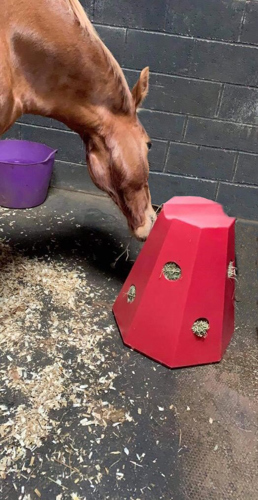
Make the most of the equipment you have
Take care of equipment by storing tools in a dry place out of direct sunlight to prolong their durability. Look after your tack by wiping away sweat or mud after each ride, and strip clean as needed to prevent leather cracking and help increase the life span. Storing tack and leather in a warmer room can help to prevent damp and mould.
Repair rugs and tack where possible. Even sending rugs off for washing and re-proofing is cheaper than buying new ones. Make sure you store rugs and other equipment in a dry place to prevent mould growth and vermin getting in when not used.
Repair broken bucket handles by plaiting bailing twine. These buckets can be used as a skip or for soaking hay.
Buying second-hand can get you a great bargain; there’s lots of social media groups or equine car boot sales. Make sure you check the equipment is in a safe condition to use and, where applicable, wash before use to prevent disease being indirectly spread. However, the BHS advises against buying second-hand riding hats. We also advise that saddles are double-checked and fitted by a qualified saddle-fitter, to prevent any complications from an ill-fitting saddle. Also, take the opportunity to sell equipment you no longer use.
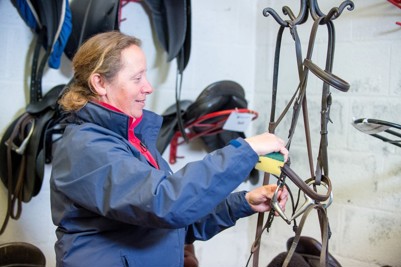
Livery
If you are unable to afford your current livery charges, speak to your yard manager to discuss any other potential livery options or you may need to consider moving to a yard with less facilities, for a reduced cost. Review the facilities you have and whether you use them all. Yards may need to charge clients for these facilities, even if they are not used, due to the rate charges the premises incur. If you are considering moving your horse to a premises/yard that provides grass livery only, check that the land drains well, has sufficient acreage and grass quality to sustain 24/7 turnout, and has some form of shelter. Plan ahead and consider what the facilities will be like in the winter, for example if you attend to your horse in the darker mornings and evenings will there be lighting available, will you still be able to ride, what storage facilities and security is available? Make sure you and your horse are in safe hands by choosing one of our BHS Approved Centres.
Working livery
Working livery options can be a great way of reducing livery costs in return for the establishment using your horse. This could include a local riding school or specialist college. Make sure that the establishment is licensed as a riding school with their Local Authority and ideally a BHS approved yard. It will also help with reducing fuel costs and keeping your horse fit but make sure that you sign an agreement that suits you and your horse.
Bedding
Rubber matting is a big investment to start with but can save bedding costs in the long-term. We strongly advise that a good layer of bedding material is added on top of the mats, as this will help soak up urine and contain droppings. Make sure you do your research to find a bedding that best suits your horse and your environment. Muck out well each day being careful not to waste bedding and only take out what you need to.
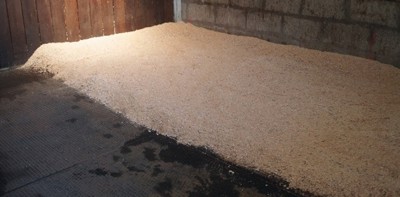
Get in Touch
The Horse Care and Welfare Team are here to help and can offer you further advice with any questions you may have. Contact us on 02476 840517* or email welfare@bhs.org.uk – you can also get in touch with us via our social media channels.
Opening times are 8:35am-5pm from Monday–Thursday and 8:35am-3pm on Friday.
*Calls may be recorded for monitoring purposes.
References
chevron-down
chevron-up
- Horse & Hound. (2022) Cost of living squeeze: what it means for horse owners and equestrian businesses.



